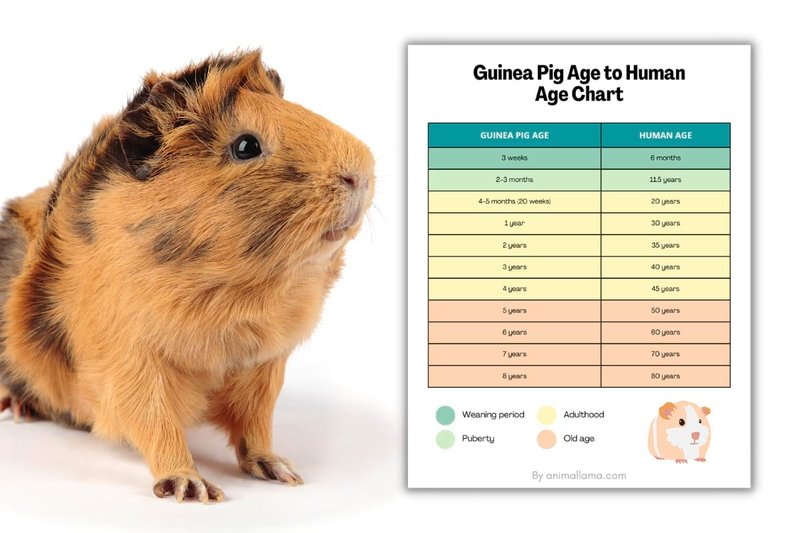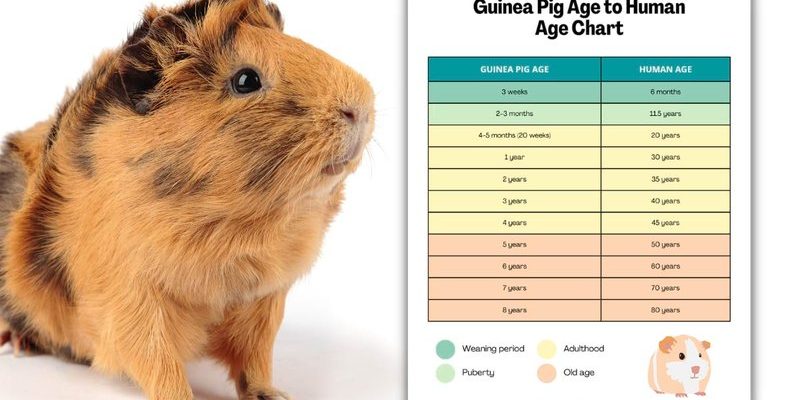
Most folks are surprised to find that guinea pigs typically live between 5 to 7 years, though some can live into their teens with the right care. Think of it like a pet goldfish; while it may seem like a simple task, it requires a commitment, and over time, those tiny creatures can become a big part of your heart and home. So, let’s dive in and explore guinea pig lifespan, what affects it, and the signs of aging to watch out for.
Understanding the Average Lifespan of Guinea Pigs
When it comes to the lifespan of guinea pigs, it’s good to know that several factors come into play. Generally, guinea pigs reach their golden years between 5 and 7 years old. Some breeds might even outlive that range, making it not uncommon for a guinea pig to celebrate a birthday at age 8 or 9—if you’re giving them lots of love and a healthy lifestyle.
You might be thinking, “Why do some live longer than others?” Well, genetics plays a huge role. Just like humans, some guinea pigs are simply predisposed to live longer. Also, regular vet check-ups help spot any potential health issues before they become serious, which can add years to their lives.
Another factor is the quality of care they receive. Proper diet, exercise, and social interaction can really boost a guinea pig’s lifespan. If they feel loved and happy, they can thrive longer. It’s a bit like growing a garden; the more you nurture it, the better it flourishes.
Factors Affecting Guinea Pig Lifespan
Several key factors can affect how long your guinea pig will live. Understanding these can help guide your decisions as a pet owner.
- Diet: A proper diet is crucial; it should consist mainly of hay, fresh vegetables, and specially formulated pellets. Poor nutrition can lead to serious health issues.
- Living Space: Providing a clean, spacious cage allows them to move around and stay active. A cramped environment can lead to stress and health problems.
- Socialization: Guinea pigs are social creatures. Having a companion can reduce stress and loneliness, leading to healthier, happier pets.
- Healthcare: Regular visits to the vet for check-ups and vaccinations can help catch health issues early. This proactive approach can significantly impact their longevity.
In short, if you want your guinea pig to live a long and fulfilling life, make sure to give them a balanced diet, plenty of space, social interaction, and routine healthcare. Treating your little buddy right pays off!
Signs of Aging in Guinea Pigs
As your guinea pig grows older, you may notice some changes that signal they’re entering their senior years. It’s important to recognize these signs so that you can adjust their care as needed.
One of the first signs of aging is a change in activity level. You might find your guinea pig is less spry, preferring to lounge around rather than scurry about. This doesn’t mean they’re unhealthy, just that they might need a bit more rest.
You may also see changes in their fur. Older guinea pigs often develop thinning fur or graying patches, much like we do! Additionally, their eyes might become cloudy. While these changes are somewhat normal, they can also point to health issues—so keep an eye on them.
Another thing to consider is their eating habits. Older guinea pigs might become pickier or even lose their appetite. If you notice significant changes, it’s a good idea to consult a vet. Every little detail matters!
How to Care for an Aging Guinea Pig
Caring for an older guinea pig might require some adjustments to ensure they remain comfortable and healthy. Here are some things you can do:
First, consider their diet. Older gums might be weaker or sensitive, making it harder for them to chew tough food. Offering softer veggies like cooked carrots or steamed broccoli can help them eat easier while still providing essential nutrients.
Second, make sure they have a cozy, soft, and clean living environment. After all, who doesn’t love a comfy bed? Adding padding to their cage can provide extra comfort as they age.
Finally, regular vet visits become even more crucial. Stay attuned to changes in their health and behavior. A good veterinarian can help guide you through any adjustments you might need to make.
Importance of Regular Vet Visits
Just like you need regular check-ups with your doctor, your guinea pig needs them too! A trip to the vet can help prevent and treat any health issues that may pop up. This is especially important as your furry friend ages, as they may become more susceptible to diseases.
During these visits, the vet can monitor for common age-related issues like dental disease, heart problems, and arthritis. They’ll also provide advice on any dietary changes or supplements that might be beneficial.
You can also learn about the signs to watch for at home that might indicate your guinea pig isn’t feeling well. Remember that early detection is key—be proactive!
Common Health Issues in Aging Guinea Pigs
As guinea pigs age, they become prone to a few specific health conditions. Being aware of these can help you catch them early.
One of the most common issues is dental disease. Guinea pigs’ teeth continue to grow throughout their lives, and if they don’t wear down properly, they can cause pain and prevent proper eating. Regular vet check-ups will help you stay on top of this.
Another concern is arthritis, which can hinder movement and cause discomfort. Providing a comfortable living space with easy access to food and water can help.
Lastly, keep an eye out for signs of heart disease. This can manifest as difficulty breathing or lethargy. If you notice these signs, consult a vet right away.
Creating a Happy Environment for Your Guinea Pig
In the end, creating a joyful environment is essential for both the lifespan and quality of life for your guinea pig. Here are some tips to achieve this:
– Variety in Diet: Rotate their veggies and pellets to keep mealtime exciting. A little creativity goes a long way!
– Interactive Play: Engage them with toys and tunnels. They love to explore, and keeping their mind active is just as important as keeping their body healthy.
– Gentle Handling: As they age, they might become more sensitive. Always handle them gently, and watch for signs of stress.
Giving your guinea pig a happy, enriching environment can make a massive difference. The best part? It’s all about sharing moments of fun and joy together.
As we wrap things up, remember that living with guinea pigs can be fully rewarding. Knowing how long they typically live and the signs of aging can help you prepare and care for your little buddy throughout their life. With the right care and attention, your guinea pig can bring joy to your life for many years to come!

